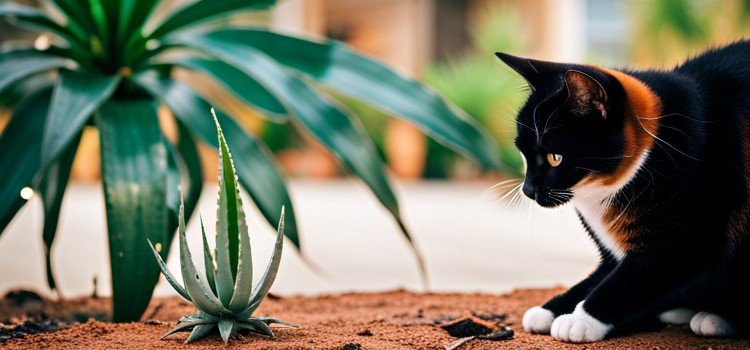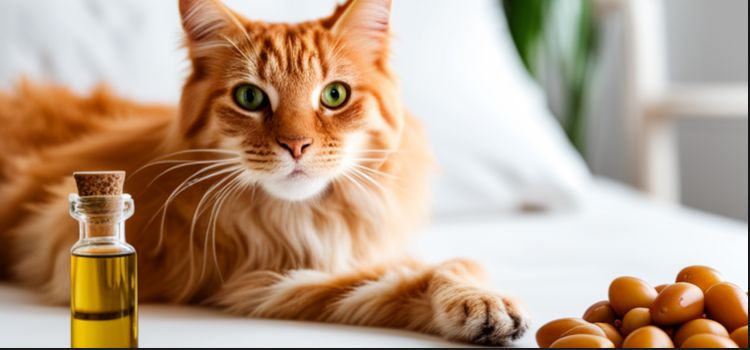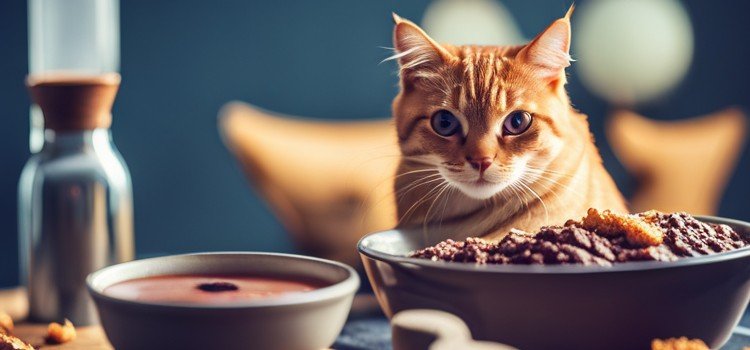As an Amazon Associate committed to the mission of improving the lives of our readers, Live-Clear.com receives a small commission from eligible purchases made through our affiliate links. This revenue enables us to keep producing insightful articles and other material.
Cats are known for their selective nature regarding food and beverages. As responsible pet owners, we always want to ensure our feline friends are well-hydrated, especially during the hot summer months. Coconut water has gained popularity among humans as a refreshing and hydrating drink, but is it safe for our cats? In this comprehensive guide, we will delve into the topic of whether coconut water is suitable for cats, examining both its potential benefits and risks.

What is Coconut Water?
Coconut water refers to the transparent liquid naturally present within young, green coconuts. It differs from coconut milk, which is derived from the flesh of mature coconuts. Coconut water is a natural source of hydration for humans. It is often touted for its high electrolyte content, making it a popular choice for rehydration after exercise or on hot days. It’s also naturally low in calories and fat, making it a healthier alternative to sugary drinks.
However, it’s important to note that coconut water may not suit everyone. While it is generally safe for most people, those with kidney problems or on a low-potassium diet should exercise caution due to its high potassium content. Additionally, some brands of packaged coconut water may contain added sugars or preservatives, so it’s advisable to check the label before purchasing.
Is Coconut Water Safe for Cats?
Before you give your cat a taste of coconut water, it’s essential to consider its safety. In general, small amounts of plain coconut water are considered safe for cats in moderation. However, it’s crucial to note that not all cats will react the same way to coconut water, and individual sensitivities can vary. The following are some vital information to keep in mind:
- Moderation: Always provide coconut water to your cat in moderation. Small sips or a taste from your finger are usually sufficient.
- No additives: Ensure the coconut water you offer to your cat is pure and free of any additives, including sugar, flavorings, or preservatives. Some human coconut water brands may contain ingredients that are harmful to cats.
- Observation: Pay close attention to how your cat reacts to coconut water. If you notice any adverse reactions, discontinue offering it.
It’s important to remember that every cat is different, and while some may enjoy coconut water, others may not. If your cat shows no interest or dislikes the taste, it’s best to respect their preferences and not force them to consume it. Additionally, if you have any concerns or questions about offering coconut water to your cat, consult with your veterinarian for professional advice.
Potential Benefits of Coconut Water for Cats
While coconut water should not be a primary source of hydration for cats, it does offer some potential benefits when given in moderation:
- Hydration: Coconut water is a natural and hydrating liquid that can help keep your cat adequately hydrated, especially if they are reluctant to drink regular water.
- Electrolytes: Like in humans, coconut water contains essential electrolytes, such as potassium, which can benefit your cat’s health.
- Low in Calories: Coconut water is low in calories and can be a refreshing treat for your cat without contributing to excess weight gain.
- Natural Flavor: Some cats are enticed by the slightly sweet and natural taste of coconut water, making it easier to administer medications or supplements if needed.
Hydration is crucial for a cat’s overall well-being, and offering coconut water can be a great alternative to encourage them to drink more fluids. Additionally, antioxidants in coconut water may provide additional health benefits for your feline friend.
Potential Risks of Feeding Coconut Water to Cats
While coconut water has its benefits, there are potential risks that you should be aware of:
- Diarrhea: Offering too much coconut water to your cat can lead to diarrhea due to its natural laxative properties. This is why moderation is key.
- Allergies: Some cats may be allergic to coconut or its derivatives. Signs of allergies can include vomiting, diarrhea, skin rashes, or respiratory issues. If you notice any of these symptoms, discontinue giving coconut water to your cat and consult your veterinarian.
- Obesity: Though coconut water is low in calories, excessive consumption could contribute to obesity in your cat. It’s essential to ensure that it is kept from their primary diet or water source.
Obesity in cats can lead to various health problems, such as diabetes and joint issues. Therefore, it is essential to monitor your cat’s weight and provide a balanced diet along with regular exercise. Additionally, consulting with your veterinarian can help determine the appropriate amount of coconut water or other treats for your cat’s overall health and well-being.

How to Safely Introduce Coconut Water to Your Cat
If you decide to offer your cat a taste of coconut water, follow these steps to ensure a safe and enjoyable experience:
- Start Small: Begin with a small amount, such as a few drops, and observe how your cat reacts. If they show no adverse effects, you can gradually increase the amount.
- Pure Coconut Water: Ensure the coconut water is pure and contains no additives. Always check the label before offering it to your cat.
- Freshness Matters: Opt for fresh coconut water if possible. Avoid coconut water sitting open for too long, as it may spoil and become harmful.
- Use a Bowl or Syringe: You can offer coconut water to your cat in a clean bowl or use a syringe to provide small amounts directly into their mouth.
- Hydrate with Fresh Water: Never replace your cat’s primary source of hydration with coconut water. Fresh water should always be readily available.
Coconut water can be a refreshing and occasional treat for your cat, but it should not replace their regular water intake. Cats need a consistent supply of fresh water to stay properly hydrated. Additionally, if you notice any unusual reactions or digestive issues after giving coconut water to your cat, consult with a veterinarian to ensure their well-being.
Maintaining Hydration in Cats
Hydration is a crucial aspect of a cat’s overall health. Cats have a low thirst drive, so they often don’t drink water as readily as other animals. Here are some tips to help ensure your cat stays appropriately hydrated:
- Fresh Water: Always make sure to supply clean and fresh water in a bowl that has been well-cleaned. Cats prefer running water, so consider investing in a cat water fountain, which can encourage them to drink more.
- Wet Cat Food: Wet cat food contains a significant amount of moisture and can contribute to your cat’s daily water intake. Veterinarians often recommend it for cats with hydration issues.
- Ice Cubes: Some cats enjoy playing with ice cubes, which can also provide a fun way to consume more water.
- Multiple Water Stations: If you have a large house, consider placing water bowls in various locations to make it easier for your cat to access water throughout the day.
- Hydration Assessment: If you’re concerned about your cat’s hydration levels, consult your veterinarian. They can assess your cat’s overall health and provide specific recommendations.
Additionally, there are water fountains designed specifically for cats that can encourage them to drink more water. These fountains can be purchased online. These fountains deliver a steady stream of clean water, which some feline owners believe makes them more enticing to their pets. Because it has a higher proportion of water to other ingredients than dry food, wet food for cats can also assist in improving the overall level of hydration experienced by your feline friend.
Dietary Considerations
Beyond hydration, a well-balanced diet is crucial for your cat’s health. Here are some vital dietary considerations:
- Quality Cat Food: Choose high-quality cat food that meets your cat’s life stage and specific dietary requirements. Consult your vet to determine the best type of food for your cat.
- Portion Control: Overfeeding can lead to obesity, so it’s essential to measure your cat’s food portions and follow feeding guidelines.
- Protein: Cats are obligate carnivores, requiring a diet high in animal protein. Ensure their food contains a significant portion of meat-based protein.
- Avoid Toxic Foods: Some human foods, like chocolate, onions, garlic, and grapes, are toxic to cats. Never feed these to your cat.
- Consult Your Veterinarian: If you have any dietary concerns or questions about your cat’s nutrition, always consult your veterinarian. They can offer tailored advice based on your cat’s specific needs.
Additionally, it is essential to note that cats have different nutritional requirements than other animals. Their bodies are designed to metabolize and utilize nutrients from animal sources more efficiently. Therefore, it is crucial to prioritize animal-based protein in their diet to support their overall health and well-being. Remember, a balanced and appropriate diet plays a significant role in maintaining your cat’s optimal health.
Signs of Dehydration in Cats
It is essential to have a good understanding of the symptoms of dehydration in cats. Common symptoms include:
- Dry or sticky gums
- Loss of skin elasticity
- Sunken eyes
- Lethargy
- Decreased urination
If you notice any of these signs, you must address your cat’s hydration immediately. Consult with your veterinarian, who can determine the cause of dehydration and recommend appropriate treatment. Cat dehydration can be caused by various factors such as illness, hot weather, or insufficient water intake. Sometimes, your veterinarian may suggest administering fluids to rehydrate your cat and prevent further complications. Always provide fresh water and monitor your cat’s hydration levels regularly to ensure their well-being.

Conclusion
In conclusion, coconut water can be safely offered to cats in moderation, but it should never replace their primary water source or diet. While it may provide some hydration benefits and be a refreshing treat, it’s essential to be cautious and attentive to your cat’s needs and reactions. When in doubt, consult your veterinarian for guidance on providing the best hydration and nutrition for your feline companion. Remember, the health and well-being of your cat should always be the top priority.
It’s also important to note that not all cats may enjoy the taste of coconut water, so it’s best to introduce it gradually and observe their response. Additionally, keep in mind that coconut water should only be given as an occasional treat and not as a regular part of their diet.
Frequently Asked Questions (FAQ)
Cats should not drink coconut water daily. While it can be offered occasionally as a treat, it should differ from their regular water source or diet. Coconut water should not replace a cat’s regular water intake as it may not provide all the necessary hydration and nutrients that cats need. It is essential to ensure that your cat has access to fresh, clean water to hydrate them properly.
Yes, there are safer alternatives for keeping your cat hydrated, such as fresh water and specially formulated cat-safe electrolyte solutions, which are designed to meet feline needs. These electrolyte solutions can help replenish lost fluids and provide essential nutrients for your cat’s overall health. Additionally, wet cat food can also contribute to their hydration as it contains a high water content.
Cats should consume coconut water in small amounts, typically as a treat. Starting with a few drops and gradually increasing the amount is a safe approach. Coconut water should not replace their regular water intake as it may not provide all the necessary hydration and nutrients they need. It is essential to monitor your cat’s reaction to coconut water and consult a veterinarian before incorporating it into their diet.
Kittens should not be given coconut water, as their delicate digestive systems may not tolerate it well. Stick to their mother’s milk or formula. Coconut water may cause digestive issues such as diarrhea or upset stomach in kittens, harming their health. It is best to wait until they are older and their digestive system is more developed before introducing coconut water into their diet.
Signs of coconut water allergies in cats may include vomiting, diarrhea, skin rashes, or respiratory issues. If you suspect an allergy, discontinue coconut water and consult your veterinarian. They can help determine if the symptoms are related to an allergy and provide appropriate treatment or guidance. It’s essential to constantly monitor your cat’s reaction to new foods and consult a professional if any adverse effects occur.
Remember to monitor your cat closely when introducing new foods or beverages to their diet, and always prioritize their well-being. Providing a safe and nurturing environment, a balanced diet, and plenty of fresh water will help keep your feline friend happy and healthy for years.
If you have any more questions or concerns about your cat’s diet or well-being, don’t hesitate to contact your local veterinarian. They can provide personalized guidance and recommendations to ensure your cat’s health and happiness. Thank you for caring for your furry friend, and here’s to many more happy and healthy years together!
Amazon and the Amazon logo are trademarks of Amazon.com, Inc, or its affiliates.



